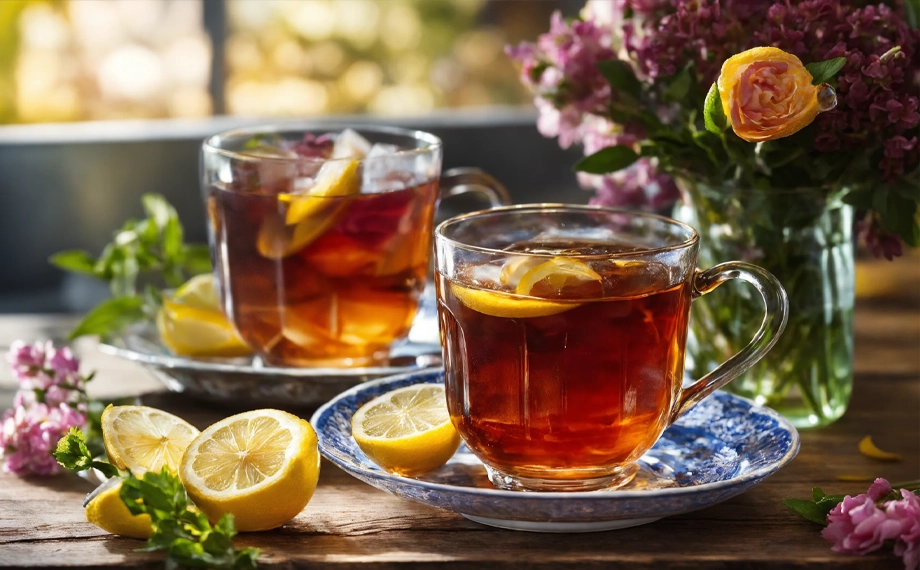Drinking Cold versus Hot Tea

Drinking tea, whether hot or cold, can offer distinct experiences and benefits. Here are some key differences between drinking cold and hot tea:
Flavor Profile:
- Hot Tea:
- Hot tea tends to have a more pronounced and immediate flavor profile. The heat helps release the aromatic compounds in the tea leaves or herbs, providing a fuller and more robust taste.
- Cold Tea:
- Cold tea often has a milder flavor compared to hot tea. The cold temperature can mute some of the subtle nuances in the tea, making it refreshing and easy to drink, especially in warmer weather.
Aroma:
- Hot Tea:
- The steam from hot tea contributes to a more aromatic experience. The warmth enhances the release of volatile compounds, leading to a fragrant and comforting aroma.
- Cold Tea:
- Cold tea tends to have a more subdued aroma. While some aromas are still present, they might not be as noticeable or intense as those in hot tea.
Refreshment and Hydration:
- Hot Tea:
- Hot tea can be comforting and is often associated with relaxation. It is a popular choice during cold weather or when looking for a warm and soothing beverage. The heat can also induce sweating, potentially aiding in cooling the body.
- Cold Tea:
- Cold tea is particularly refreshing, making it a great choice for staying hydrated on hot days. It can be a thirst-quenching option and is often served over ice for added chill.
Preparation and Convenience:
- Hot Tea:
- Hot tea usually requires a steeping process that takes a few minutes. It’s a more immediate and traditional method of tea preparation.
- Cold Tea:
- Cold tea can be prepared by steeping tea leaves or herbs in hot water and then cooling the mixture. Alternatively, cold brew methods involve steeping tea in cold water over an extended period, typically several hours or overnight.
Health Benefits:
- Hot Tea:
- Hot tea is often associated with soothing properties, making it a popular choice for respiratory comfort. It can help relax the body and may be soothing for a sore throat or congestion.
- Cold Tea:
- Cold tea is a hydrating option and can be rich in antioxidants, offering potential health benefits similar to hot tea. Cold herbal teas, in particular, are often consumed for their refreshing taste and potential digestive benefits.
Seasonal Preferences:
- Hot Tea:
- Hot tea is commonly associated with colder seasons or cooler weather. It’s a comforting choice for warming up in winter.
- Cold Tea:
- Cold tea is popular during warmer seasons, providing a cooling and revitalizing option in hot weather.
In summary, whether you choose hot or cold tea often depends on personal preference, the weather, and the desired experience. Both versions can be enjoyed for their unique characteristics and can be a part of a healthy and hydrating beverage routine.
